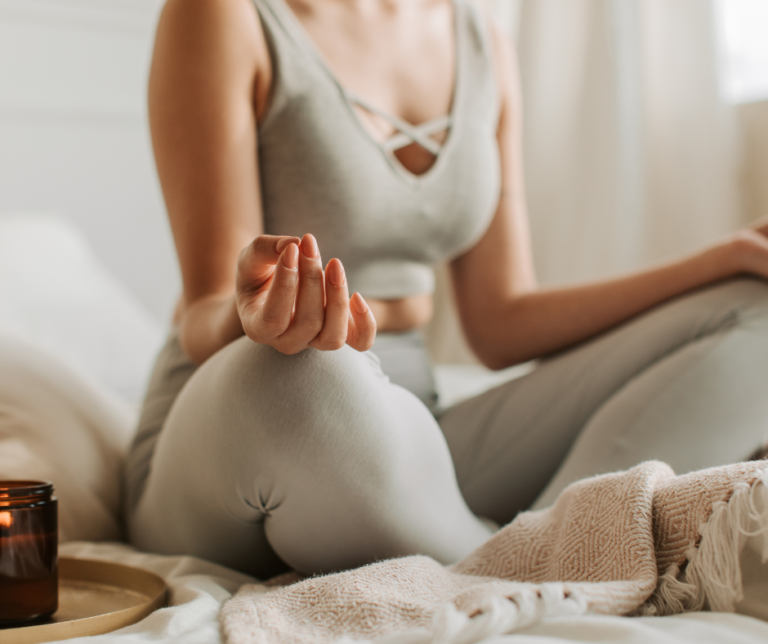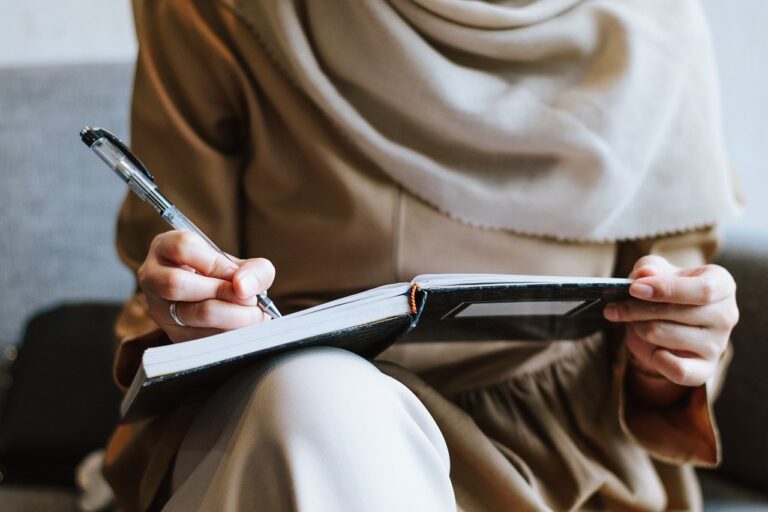
Sleeping properly is so important to our overall health and well being. It is the time we get to rest and repair our physical bodies, switch off and rest the mind. It can greatly affect our mental and physical health. So many of us suffer with insomnia, irregular sleep patterns, or simply not getting enough or the quality of rest that we need to function optimally.
To ensure your sleep is most restful, restorative, and most beneficial for overall health, here are some key principles and suggestions inspired by my own experience and the wisdom of Ayurveda.
Prepare Yourself and the Environment you Sleep In
• Ensure your room is clean and tidy, free from clutter and is well balanced energetically. It should be a peaceful, welcoming, calming place to be in (reference to the Vedic science of space and directional influences – “vastu shastra” – can assist in guiding us with this).
• Ensure the room is well ventilated and comfortable temperature for sleep – not too hot or cold (recommendation is between about 18 – 23 degrees C).
• Have a warm bath or shower and imagine the energy and / or stresses of the day being washed away by the water and following away down the drain. Use bath salts for cleansing and / or relaxing essential oils such as lavender or chamomile.
• Play relaxing, soothing / frequency music before going to bed, such as OM chanting, sleep music at 432 /528 hertz. This helps us to naturally go into a more relaxed brain wave state and can in turn induce a state of deep sleep and restoration.
• Have a warm relaxing, soothing drink, 1 hour before bed time, such as hot milk (or vegan oat or almond alternative) with haldi / turmeric (Golden milk), or chamomile herbal tea or add 1 teaspoon Ashwaghanda powder to help relax, calm and sleep more easily. I have a special sleep time “moon milk” drink recipe I will share – do send me a message if you would like me to send it directly to you.
• Always try to eat a healthy, balanced diet, appropriate for your mind- body type / doshic constitution. Do not eat over stimulating foods in the later part of the day (afternoon/evening time)
• Do not overeat. According to Ayurveda, following a meal the stomach should contain 50% food (approx. 2 cupped hands full) 25% liquids, and 25% air to enable most effective digestion. To know when you have reached these amounts you have to develop an awareness of digestion and learn to read your own body’s reactions and signals to the food you are consuming as well as your body’s signals of satiety. Note – it is advisable not to eat at least 2 hours prior to sleeping, so your evening meal should be taken early on in the evening as possible (ideally just before sunset) – to aid in better digestion and so as not to adversely affect your quality of sleep.
- Switch off devices (phones, laptops, T.V’s, all electronic devices) at least 2 hours before bed, and unwind naturally instead by having a bath, reading a book, meditating, listening to frequency music for example. Electronic devices emit an electro-magnetic field (EMF), that can also affect and interfere with our own energy field. These can also overstimulate the mind and make it difficult for us to switch off mentally and fall asleep quickly.


Sleeping according to “Vastu Shastra”

Sleeping, according to vastu shastra (Vedic science of space and directional influences) – which is similar to and from where Feng Shui derives).
As everything is influenced by the pull of the magnetic poles on the planet, including the movement of the continents itself, they also affect our own systems and energies as well. This is why when we lay down to rest, repair and rejuvenate our bodies at night, the direction in which we sleep is also important. In the northern hemisphere sleeping with our head in the direction of East is best, most preferable position and promotes the most restful and nourishing sleep. With the head pointing south, can also have some benefits. Sleeping with our head to the west may cause disturbed, disruptive sleep. However, one should avoid sleeping with our head pointing north as this will disrupt the balance of the body, creating dis-harmony and can lead to other health problems.
Sleeping Position

According to Ayurveda, sleeping on your left side, also known as “Vamkushi” is the best sleeping position. Sleeping on the left side contributes to your health by putting less pressure on the organs therefore allowing them to function more optimally. Some of the other health benefits of sleeping on your left side include: Improves digestion; reduced pressure on the heart due to it being positioned on the same side and therefore lymph drainage towards the heart is helped by gravity; the spleen is also on the left side and therefore it helps to improve blood flow and lymphatic drainage; it also improves function of the kidneys and liver. It is also advised to sleep on the left side during pregnancy as much as possible, as doing so helps to take the pressure off the back and also increases the blood flow to the foetus and uterus. Sleeping on the left also helps in smooth flow of nutrients to the placenta.
Quietening the Mind

Integrating daily meditation / yoga / pranayama / mantra chanting practices into your routine – can help improve quality of sleep significantly, as it will help to regulate the nervous system, reduce stress levels, clear the mind and generally bring about more balance within. To gain the benefits daily practice, ideally at set times is essential.
If you have things on your mind, keep a journal / note pad and pen next to your bed and practice journaling or free writing, even just for 10 minutes before you switch the light on. This can help get out all the thoughts occupying our minds onto paper and help one to feel lighter and stop the distracting thoughts that can often keep us awake. This practice can also help to put things into perspective better, as they may not seem so bad once written down.
Going a step further with the journaling exercise, or you can just do this mentally as well, is to think of all the things that you were grateful for in the day, and say thank you for them, one by one, no matter how small. Once you have exhausted this list, then move on to visualising the things you plan to do the following day, setting realistic, achievable goals for the next day ahead. This practice can also aid in clearing the mind, increasing positive mindset and thinking as well as bringing about a sense of perspective and seeing the bigger picture.

Herbs & Supplements
- Did you know that magnesium has an important role to play in our sleep? In fact a deficiency of magnesium can cause insomnia. People with low magnesium often experience restless sleep, waking frequently during the night. Maintaining healthy magnesium levels often leads to deeper, more sound sleep. Magnesium plays a role in supporting deep, restorative sleep by maintaining healthy levels of GABA, a neurotransmitter that promotes relaxation and sleep. GABA helps to regulate our nervous system and stress-response. People with low levels often experience anxiety and difficulty relaxing. Research indicates supplemental magnesium can improve sleep quality, especially in people with poor sleep. Magnesium can also help insomnia that is linked to “restless-leg syndrome” disorder.
- Magnesium is easily absorbed through the skin, so taking a bath with epsom salts before bed can really help with this, or using a good quality topical magnesium oil or spray. Also increasing your intake via magnesium rich foods, such as walnuts, almonds, brazil nuts, avocados, legumes such as lentils, beans, chickpeas and peas, pumpkin, flax and chia seeds, bananas and leafy greens can help.
Other natural, herbal supplements that may be helpful in overcoming insomnia and aiding in sleep are:-
Camomile, known for its calming and soothing properties. Take it as a herbal infusion tea before bedtime.
Lavender, also known for its calming, soothing, anxiety reducing benefits, can be used to improve sleep. Use a good quality lavender essential oil by putting a few drops on your pillow before bed time, diffusing in an essential oil diffuser or adding to your bath.
Ashwaghanda is a well known ayurvedic herb which can be taken in powder form by adding to a warm drink or tea before bed time or can also be taken in tablet form. A vata pacifying herb that among its many benefits helps reduce physical and mental stress and tension, and helps one to fall asleep naturally.
Tagara is another ayurvedic herb with natural sedative properties. It has calming and soothing effects which help to reduce sleep naturally. It can also be taken as a powder or in capsule form and can be combined with other herbs.
Jatamansi, is a potent herb used in ayurveda to assist with the onset of sleep. Among its other benefits it also helps to balance all doshas and has an overall calming effect. It can be taken as a powder or in capsule form and can be combined with other herbs.
Cabbage rose, helps to normalise the psycho-emotional state, balance emotions, bring a sense of comfort, soothe nerves, calm and can help improve sleep. In ayurveda this is also available in supplemental form and can be taken on its own or with other beneficial herbs.

Align with the Natural Rhythms of Nature

• Try to align your sleep schedule to the natural rhythms of nature. Ayurveda divides the day into two twelve hour slots. Each slot is characterised by a specific dosha and contains three four hour cycles. These are as follows:- the periods 2-6 am/ pm (corresponding to vata dosha); 10 – 2 am/ pm (corresponding to pitta dosha), and 6- 10 am/ pm (kapha dosha). These doshas are important as they govern mind-body harmony and daily energy levels.
• Knowing this it is important to align your activities throughout the day with the characteristics of the dosha aligning it. For instance, your pitta phase (marked by fire and energy, when the sun is at its peak) is ideal for productive and metabolic activity. Meanwhile, your vata is light and energetic, therefore this phase is ideal for creativity and stimulation. This can take the form of dreaming when you are asleep, or various creative work while you are awake.
• Therefore Ayurveda recommends going to sleep before 10:00 pm, and waking no later than 6:00 am before the onset of kapha. Being in a good routine in alignment with these phases supports your body in giving sufficient time to process digestive material and recharge your systems.
• It is said (numerous studies have confirmed) that the sleep we get before midnight is the most important and restorative phase of sleep – mentally, physically and spiritually. It is known as the “90 minute phase” (the sleep we get at least an hour and a half before midnight) which allows the brain to reorganise itself and reduce adrenaline and cortisol levels in order to fully rejuvenate and replenish itself, allowing us to wake at the right time feeling refreshed.

Please note that the information contained within this article is based on my own experiences and principles of healthy living from my knowledge of Ayurveda. The information, techniques and recommendations mentioned herein are not intended as a substitute for the medical advice of a qualified healthcare physician or Ayurvedic doctor. If in doubt, or if you may require diagnosis or medical attention, consult your healthcare provider before implementing or adopting any significant diet or lifestyle changes and taking any herbal supplements.
I would love to hear from you if these tips helped you? Or what you do to help you in getting a good nights’ rest?
For more information or a free clarity call send me a message – click the button below.
This article is due to be published in the Focus on Health & Wellbeing Online magazine on the 2nd November 2023 – click the link below to view the article from this date.

